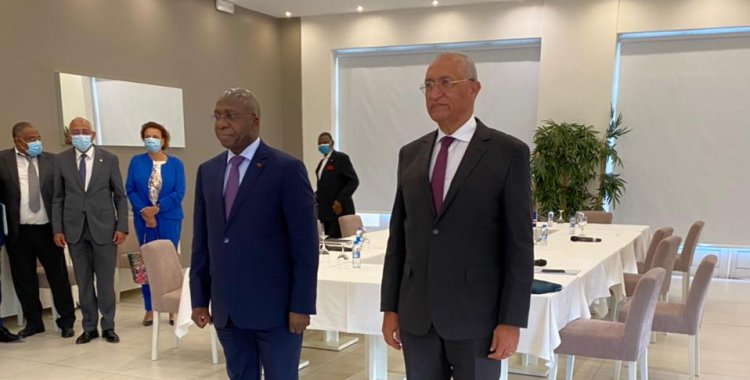"The mobility agreement will remain alive," promised the head of Angolan diplomacy at a press conference Saturday in the city of Mindelo, Cape Verdean island of São Vicente, at the end of a meeting with his Cape Verdean counterpart to settle the handover of the presidency of the Community of Portuguese Language Countries (CPLP).
Cape Verde assumed the rotating presidency of the CPLP at the organization's 12th summit of heads of state and government held in July 2018 on the island of Sal, succeeding Brazil.
Due to the covid-19 pandemic, the mandate of the Cape Verdean presidency was eventually extended for another year and will officially end with the summit of heads of state and government scheduled for July 16 and 17 in Luanda, with Angola taking the lead.
The great flagship of the Cape Verdean presidency was the proposal for the mobility of people within the community, whose text is already closed and approved by the Council of Ministers of the CPLP, and will be one of the main themes of the summit.
For the Minister of Foreign Affairs, the most important of the mobility will be its implementation and the political will of the member states to ratify the legal instrument so that it can come into force.
"And our peoples to enjoy this right of mobility, because this is a community of peoples, where only by circulating among us will we feel all the benefits of this community," he stressed.
The head of Angolan diplomacy said that during the presidency, Angola will continue the CPLP tradition of dealing with issues of collective interest, noting that Luanda will be the stage for the signing of the mobility agreement.
"Even within a family, visits are a very important indicator of good relations within a family, and within the family of the CPLP is no different, and this agreement will certainly allow this indicator to be a reality," she said.
Still on the Angolan presidency of the CPLP, Téte António considered that it will be a "very soft landing" because of the good conditions created both by Cape Verde and by the executive secretary of the Lusophone community.
"I think it is a salutary exercise that we should continue to do in this CPLP family," said the minister.
In turn, the minister of Foreign Affairs and Communities of Cape Verde, Rui Figueiredo Soares, wished success to Angola's next presidency of the CPLP, hoping also that the community can be increasingly strong and peoples.
The Luanda summit will also address economic issues, the choice of a new executive secretary or the holding of an economic conference.
The head of Cape Verdean diplomacy said that Angola wants to give great importance during its presidency to economic and business issues in the CPLP space.
"We have already taken an important step regarding the mobility agreement and the visits will be important, but it will also be important that the countries can establish strong economic and business relations," he understood.
For Rui Figueiredo Soares, the CPLP is a very rich community, for its diversity and natural riches, and the commercial exchanges should be encouraged in order to obtain the best result and the best happiness in the mobility scope.
"We understand that this will be a very important step for the consolidation of the community," concluded the Cape Verdean minister at the end of the meeting where the vision and perspectives of the organization and the way Angola will organize the Luanda summit were discussed.
The choice of date for the summit has to do with the fact that the intention is to make it coincide with the date that marks the 25 years of the CPLP, July 17.
The conference, consisting of the Heads of State and/or Government of all Member States, is the highest body of the CPLP and is responsible for defining and guiding the general policy and strategies of the CPLP, adopting legal instruments necessary for the implementation of this Statute, but may delegate these powers to the Council of Ministers.
According to the CPLP statutes, the Heads of State and Government meet ordinarily every two years.
Angola, Brazil, Cape Verde, Guinea-Bissau, Equatorial Guinea, Mozambique, Portugal, São Tomé and Príncipe and Timor-Leste are the Member States of the CPLP.







